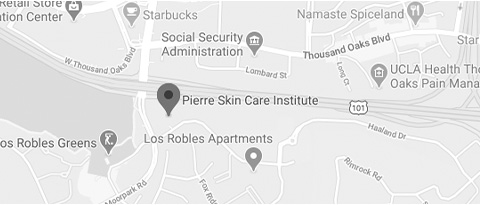Psoriasis
Treat Distinctive Scaly Plaques in Thousand Oaks
There are many reasons someone may develop dry and red patches on their face or body. If these symptoms are accompanied by the growth of scaly patches, the problem may be a chronic skin condition known as psoriasis. Thousand Oaks’ Dr. Peterson Pierre regularly sees patients who think they are having an allergic reaction, but who are actually showing signs of an autoimmune disorder that can impact anyone of any age.
Only admnistrator owned posts can execute the [includeme] shortcode. This message is shown only to administrators.
Since psoriasis can be associated with diabetes, heart disease, and other serious health problems, it is important to see a dermatologist for diagnosis and treatment. The National Psoriasis Foundation® estimates that about 8 million people in the United States deal with the chronic condition.
[includeme] shortcode. This message is shown only to administrators.
What Is Psoriasis?
Psoriasis is a skin disorder that can impact patients of all ages and genders, typically by causing skin cells to grow excessively rapidly and form “plaques.”
These plaques are more common on specific areas such as the scalp, knees, and elbows, but they can develop anywhere on the body. The condition can be incredibly uncomfortable, resulting in itching, stinging, and burning sensations. Scratching may not alleviate these sensations–and can, in fact, make the problem worse by causing further irritation, bleeding, and infection.
While psoriasis can manifest at any time, it commonly develops in people between the ages of 15 and 35. Infant psoriasis is rare, but up to 15 percent of patients with the condition saw symptoms start before the age of 10.
Dr. Peterson Pierre can diagnose psoriasis by examining scaly patches closely. He may biopsy the tissue to check it for thickness and inflammation, but blood draws or other tests are not necessary. The diagnostic process can also include a complete medical history, including questions about your family. Genetics seem to play some role in psoriasis, since about a third of all patients with the disease also have a family member who has symptoms.
Only admnistrator owned posts can execute the[includeme] shortcode. This message is shown only to administrators.
What Are The Different Forms Of Psoriasis?
Dr. Peterson Pierre and his team are experienced in diagnosing and treating psoriasis for patients young and old. He is also trained in recognizing the various types of psoriasis that can develop. Some of the more common types he sees include:
- plaque, which forms silvery patches of thickened skin and can also impact fingernails and toenails with discoloration and pitting
- guttate, characterized by red dots shaped like teardrops, more commonly found on children and young adults
- inverse, found in folds and creases of the body, such as the groin, below the breasts, and armpits
- pustular, which can cause the hands and feet to develop painful blisters
There is also erythrodermic psoriasis, a rare and potentially life-threatening form that develops in spotty red sheets that can cover the entire body. This type can cause severe pain and itching sensations, as well as cause changes in heart rate and body temperature.
A related condition is psoriatic arthritis, with is inflammation in the body, causing joint pain. About one in three patients dealing with skin plaques will also have joint problems, though one does not necessarily cause the other.
What Are The Risk Factors For Psoriasis?
There are several factors that can increase the chances of getting this condition, including family history, age, obesity, and race. There is a genetic component to psoriasis and the condition runs in families, so if one or both of your parents have it, there is a higher risk of you getting it. Excess weight can also be linked to psoriasis, since plaques often form in skin folds and creases as a result of friction and sweating.
What Causes Psoriasis And Triggers Outbreaks?
If you have psoriasis, good management can go a long way in preventing the symptoms as much as possible. There’s no way of getting rid of it entirely, but there are ways to manage it properly and cope with it more easily. Psoriasis only causes problems when it flares up. For some people, symptoms may constantly flare up, while others may only experience them once every few years. Outbreaks of the condition may continue for days, weeks, or sometimes longer.
There are many different possible triggers for psoriasis, varying from person to person, so it’s critical to determine what your specific triggers are if you want to cope better with the condition. Researchers are continuing their work into determining the causes of psoriasis, but the most current theory is that people suffering from the condition have specific genetic factors triggered by some sort of stimulus, from stress or injury to medications to viral or bacterial infections. Alcohol, a poor diet, tight clothing, rough fabrics, certain skincare products, cold temperatures or drastic changes in temperature, and smoking are some other possible triggers.
It’s also common for the condition to flare up on areas of the skin where there has been a vaccination, rash, sunburn, scratch, or another type of injury. The medications that can increase the risk of psoriasis include lithium, anti-malarials, beta-blockers, quinidine, and certain types of arthritis medications. Exposure to certain types of weather such as dry air, a lack of natural sunlight, and cold temperatures will usually worsen the symptoms.
In general, anything that taxes the body by lowering immunity or irritating the skin may trigger initial or subsequent flare-ups. Strep throat is a known trigger of guttate psoriasis in particular. Medical professionals have also theorized that allergies, certain foods, and even changes in the weather can prompt plaques to form. Skin injuries–including even small injuries such as a cut, scrape, bug bite–or scratching too much may worsen the condition.
Psoriasis is commonly triggered by hormonal changes during puberty and menopause.
While exposure to sunlight can be beneficial for some people who have this disease, it can be a trigger for others. Either way, it’s important to protect your skin, since a sunburn will usually trigger flare-ups.
What Can Be Done About Psoriasis?
At this time, there is no known cure for psoriasis. However, with accurate diagnosis, the condition can be effectively managed. Topical treatment to normalize rapid cell reproduction is usually Dr. Peterson Pierre’s first option. Other treatment possibilities he may discuss include oral medications, injectable biologics, and light therapy. Getting psoriasis under control can be a life-changing experience.
Dr. Pierre can also help to identify possible triggers. Once the condition has been properly diagnosed, knowing these triggers can help prevent flare-ups. Triggers may include increased stress, injury to the skin, or certain types of medications for other conditions such as high blood pressure or psychiatric disorders. Telling Dr. Pierre about any medications you are taking is essential during an evaluation to check for contraindications or to find out if there is a link between a specific prescription and your flare-ups. Patients may need to get a prescription for a topical or oral medication to effectively treat psoriasis.
While aspects of psoriasis are still not fully understood by the medical community, there are many ways to help reduce the chances of an outbreak and ease the discomfort of plaques that do form.
What Things Can Be Done At Home To Reduce The Risk Of Psoriasis?
There are several lifestyle changes that can be helpful. Moisturization is one of the most important steps you can take to reduce itchiness and manage other symptoms associated with this disease. It’s best to choose a thick, rich moisturizer or ointment as it needs to be very occlusive to seal the barrier of the skin. Exposing your skin to small amounts of sunlight–while remembering to always apply sunscreen–may help to improve symptoms. Swimming in salt water may also be helpful. You can use a dehumidifier, soak in a bath with Epsom salts, and consider taking dietary supplements or changing your diet. Only expose your skin to soft, non-scratchy fabrics.
Only admnistrator owned posts can execute the[includeme] shortcode. This message is shown only to administrators.
Why Choose Pierre Skin Care Institute For Psoriasis Care In Thousand Oaks?
When dealing with any chronic skin condition–especially one with such potentially severe symptoms as psoriasis–it is important to work with an experienced and board-certified dermatologist. Dr. Peterson Pierre is trained in medical dermatology, giving him particular insight into psoriasis, eczema, rosacea, and more. He keeps current with the latest research, as well as emerging treatments and technologies, all with a goal of helping his psoriasis patients to live their best lives possible.
Only admnistrator owned posts can execute the[includeme] shortcode. This message is shown only to administrators.




